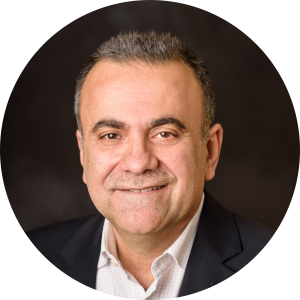
Wave energy is a critical source of clean renewable energy. Yet, from a readiness perspective and for many reasons, there has not been a prevailing design for wave energy converters. Developing the technology requires system design of components including the prime mover, foundation or mooring, power take-off, and control systems. In this talk, challenges faced and advances made towards realizing electric power from wave energy will be discussed. The discussion is mostly based on an effort supported by the US Department of Energy and led by researchers at Stevens Institute of Technology and in collaboration with researchers from the University of Michigan and Resolute Marine Energy to design a 100-kW floating oscillating wave energy converter for potential testing at the PacWave south site. Particularly, we will discuss (1) the utility and limitations of multi-fidelity numerical simulations and model testing for the design of a full-scale converter, (2) the need for system level co-design when setting the design parameters including the natural frequency vs. wave torque, flap shape, flap buoyancy, flap moment of inertia, mooring platform, and PTO control, and (3) the metrics for performance evaluation and validation including the hydrodynamics, PTO, operation in extreme conditions, parametric cost breakdown, and levelized cost of energy.

Muhammad R. Hajj is the George Meade Bond Chair at Stevens Institute of Technology. He is also the Chair of the Department of Civil, Environmental and Ocean Engineering and Director of the renowned Davidson Laboratory. Dr. Hajj is a renowned scholar in the fields of nonlinear dynamics, fluid mechanics, structural dynamics and fluid-structure interactions with applications in aero- and hydro-elasticity, ships hydrodynamics, biomimetically-inspired air and underwater vehicles, and energy harvesting. To date, he has advised and directed research programs of 32 PhD students, some of whom hold prestigious academic and industry positions. He is the author/co-author of over 170 journal publications. Before joining Stevens in 2018, Dr. Hajj held the title of the J. Byron Maupin Professor of Engineering at Virginia Tech where he served as the Associate Dean of the Graduate School between 2014 and 2018. He was also the Director of the NSF I/UCRC Center for Energy Harvesting Materials and Systems (CEHMS) between 2012 and 2018. Dr. Hajj received his Bachelor’s degree in Civil Engineering from the American University of Beirut and his Master’s and PhD degrees from the University of Texas at Austin.